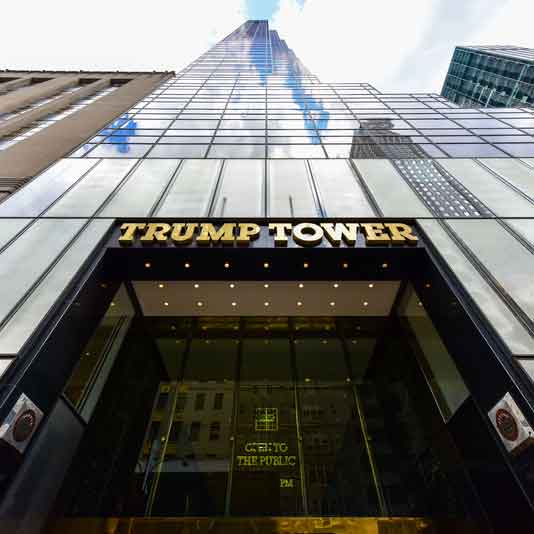Following President Donald Trump’s recent re-election, College Republican clubs across the United States have reported substantial growth in their memberships. Some chapters have even doubled their member count since the start of the fall semester.
At the Stern School of Business in New York University, which Barron Trump, the president-elect’s son, attends as a freshman, the College Republican Club has seen a significant increase in weekly meeting attendance. Numbers have surged from five to 40 members, despite Barron not being a member of the club. His presence, however, has sparked considerable interest on campus.
“This election made a lot of people more optimistic about the future of conservatism in general, I think, although [our] presence on a liberal academic campus like NYU is still generally looked down upon,” said Kaya Walker, president of NYU’s College Republican Club and a senior French major.
Walker acknowledges the interest in the president-elect’s son, saying, “He’s kind of watched like a zoo animal.” Some have commented that women on campus are paying attention and find him interesting.
Barron Trump’s influence is not limited to political groups. Sources indicate his popularity extends to social circles and even those with liberal viewpoints. His presence at NYU has led to increased attention on social media, with frequent photos of him posted by students.
The growth in NYU’s Republican Club membership is indicative of a larger trend across U.S. universities. Penn State’s chapter, for instance, has seen its numbers double to 200 active members this academic year. Tristin Kilgore, vice president of Penn State College Republicans, believes part of Donald Trump’s popularity among college students stems from their pandemic experiences.
“We were in high school, and it was a really tough time,” said Kilgore, a 20-year-old philosophy sophomore. “We’re not supporting the people who were in favor of keeping us away from our friends and away from our schools and setting us back in life.”
The University of Michigan’s chapter, the oldest College Republican Club in the U.S. established in 1892, has experienced about a third increase in membership, totaling 445 students. This is approximately half the size of the university’s Democratic Club. The chapter president expects further growth due to the new presidency.
At Babson College in Wellesley, Massachusetts, the College Republicans club experienced a significant increase in membership over the semester, doubling to 73 members. Club president Neko Kady, a sophomore studying tech entrepreneurship, noted that the club’s perception has shifted from being a small, stereotypical group, leading to more engagement. He described the reaction to the election results as excitement and celebration.
The University of North Carolina’s College Republicans Club saw its membership more than double in the two months leading up to the election, increasing from 120 to 250 members. The rise in conservative activism is noticeable with more students openly wearing MAGA hats in public spaces, including libraries.
Alexander Richmond, president of the University of Michigan’s College Republicans chapter, noted a change in how freshmen interact with the club. He suggested that many students are challenging the prevalent left-leaning culture on college campuses.
Richmond, a political science major, pointed out that the club has been attracting an unprecedented number of first-year members, a shift from the traditional trend of conservative freshmen remaining quiet.
This resurgence of College Republican clubs nationwide points to a shift in the political landscape on college campuses, driven by Trump’s re-election and the renewed conservative enthusiasm among students. From established organizations like the University of Michigan to smaller ones at Babson College, these clubs have seen unprecedented growth, with many doubling their memberships within months.
With these clubs becoming a dynamic platform for political expression and community for a generation shaped by the pandemic, and the rise of conservative activism, these students are positioning themselves as a significant force that can shape campus politics and beyond.

